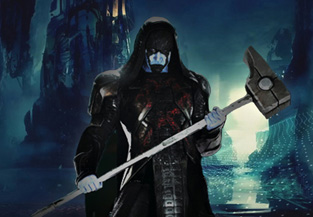|
|
Movie Review: Guardians of the GalaxyBy Edwin DaviesAugust 5, 2014
That synopsis indicates the main issue with Guardians of the Galaxy, which is that it has to cover a lot of ground to establish both its characters and the broader galactic struggle happening around them, and it occasionally struggles to balance the necessary set-up with a facetious tone. The script, credited to Gunn and Nicole Perlman, tries to barrel through all the table setting as quickly as possible, establishing everyone in half the time it takes for most origin stories. While that fleetness is a welcome departure from the laborious exposition of comic book adaptations, it also makes the humor, which is the main appeal of the film, feel strained (an effect which is heightened by Gunn's use of '70s hits on the soundtrack, which feel weirdly incongruous instead of enjoyably incongruous). There isn't enough time to let the jokes land because there's so much action and story to get through. It also doesn't help that Rocket, who is posited as the film's comic relief (he is a wise-cracking, gun-toting raccoon after all), isn't actually funny, and Cooper's delivery feels artificial and weird in a way that perfectly illustrates Billy West's argument that not every star can do voice acting. (Vin Diesel, however, is on Iron Giant form as Groot.) Once the film and its characters reach the aforementioned prison, though, Guardians of the Galaxy suddenly begins to gel. Having all of its characters in one place for a reasonable amount of time gives the gags room to breathe, as well as a better sense of who the characters are and what exactly they hope to get out of selling the orb. It also allows Pratt and Saldana, two immensely fun and charismatic actors, to spark off of each other, and for Rocket and Groot to create a nice dynamic as a sociopathic odd couple. It's also at that point that Drax enters the frame, and Bautista turns out to be the film's actual comic relief; his deadpan literalness makes for some very funny misunderstandings with his companions over their various metaphorical phrases, and makes his horrific threats of violence oddly endearing. After setting up why the team should work together, the sequence culminates in an escape that perfectly balances the mix of frenetic action, glib silliness and adventurousness that it struggled to maintain during its first third.
|

|
|
|

|
Friday, November 1, 2024
© 2024 Box Office Prophets, a division of One Of Us, Inc.


